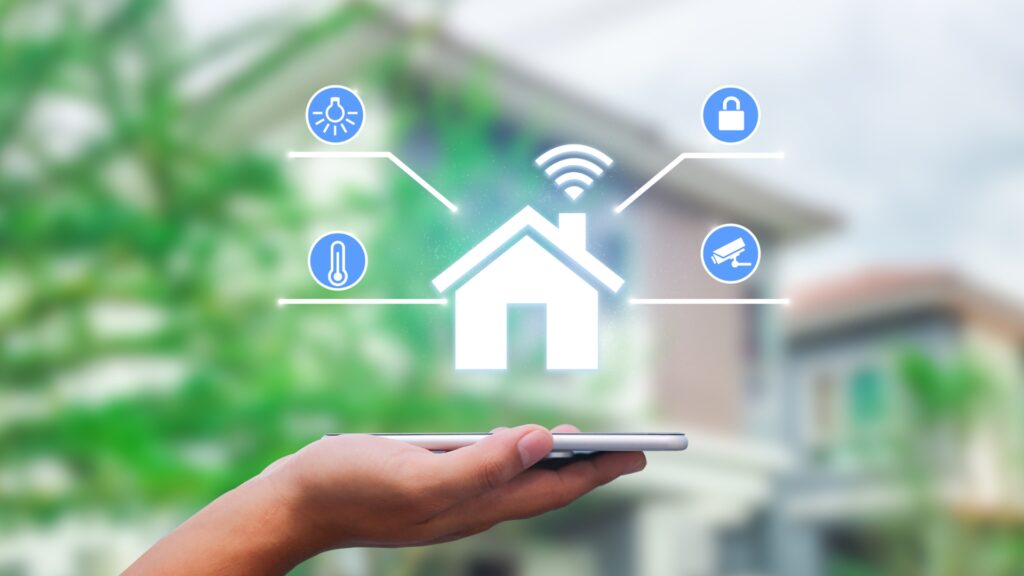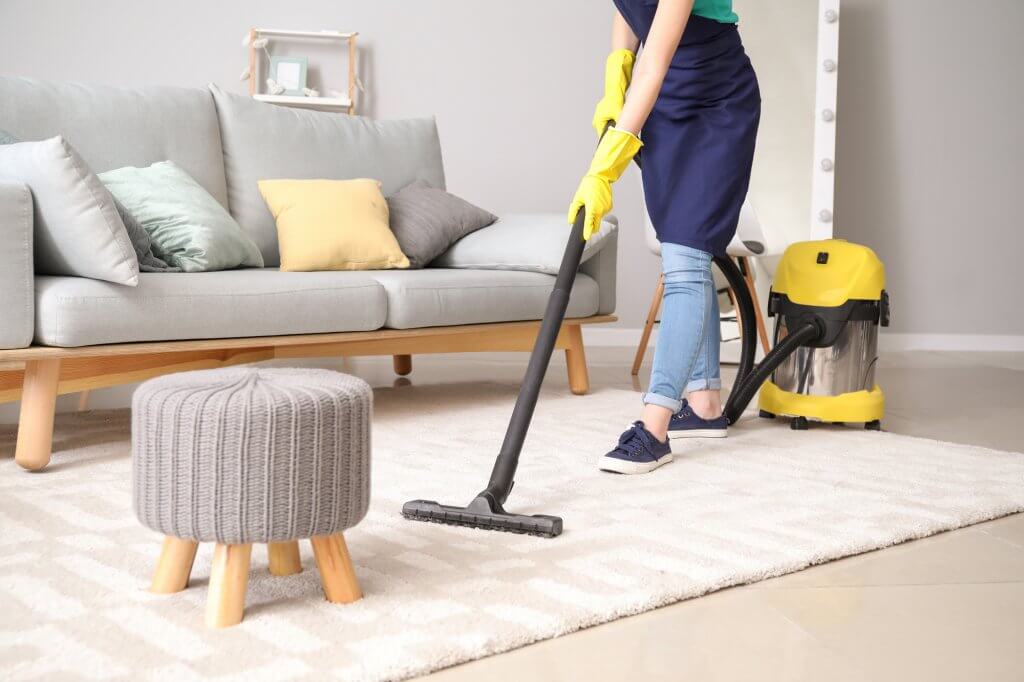Airbnb Policy on Surveillance Devices: Updated April 2024
In a significant update announced in March 2024, Airbnb has revised its surveillance device policy, now strictly prohibiting the use of indoor cameras and recording devices across all listings, to enhance guest privacy and trust within its community. The new policy, set to take effect on April 30, 2024, also outlines specific guidelines for the disclosure of outdoor surveillance systems and the permissible use of noise decibel monitors and smart devices.
The following guide aims to help hosts understand Airbnb’s new surveillance policy plus provide practical compliance tips and security camera options to protect their vacation rental properties and provide a safe environment for guests.
Understanding Airbnb’s Security Camera and Surveillance Policy
According to Airbnb, these updates are designed to foster trust and transparency within the Airbnb community by prioritizing guest privacy. Additionally, Airbnb said these changes were made after consultation with various parties, including guests, hosts, and privacy groups. Read Airbnb’s full surveillance policy.
The primary aspects of Airbnb’s revised surveillance and security camera policy include:
- Indoor Cameras and Recording Devices: These devices are now strictly prohibited within Airbnb listings, regardless of whether the devices are active or in use. This applies to security cameras and recording devices in all common areas within the property. Per Airbnb, such surveillance equipment must be removed by April 30, 2024.
- Disclosure Requirements for Outdoor Cameras: Any outdoor surveillance systems must be explicitly disclosed in the listing description, including the locations of all camera and recording devices.
- Outdoor Privacy Zones: Surveillance cameras are forbidden in outdoor areas where guest privacy is reasonably expected, such as enclosed outdoor showers or saunas.
- Noise Decibel Monitors: Hosts are allowed to have noise decibel monitors in the listing’s interior but are not allowed in private areas like bedrooms, bathrooms, or sleeping areas. Hosts must disclose the presence of noise monitors but are not required to reveal precisely where the devices are located within the property.
- Smart Devices: Airbnb suggests hosts disclose any smart devices (e.g., smart TVs, voice assistants) within the property and provide clear instructions for deactivation, enhancing guests’ comfort regarding their privacy.
- Enforcement and Consequences: Airbnb has committed to investigating reports of policy violations. Hosts found in breach may face penalties, including removing their listings or accounts.
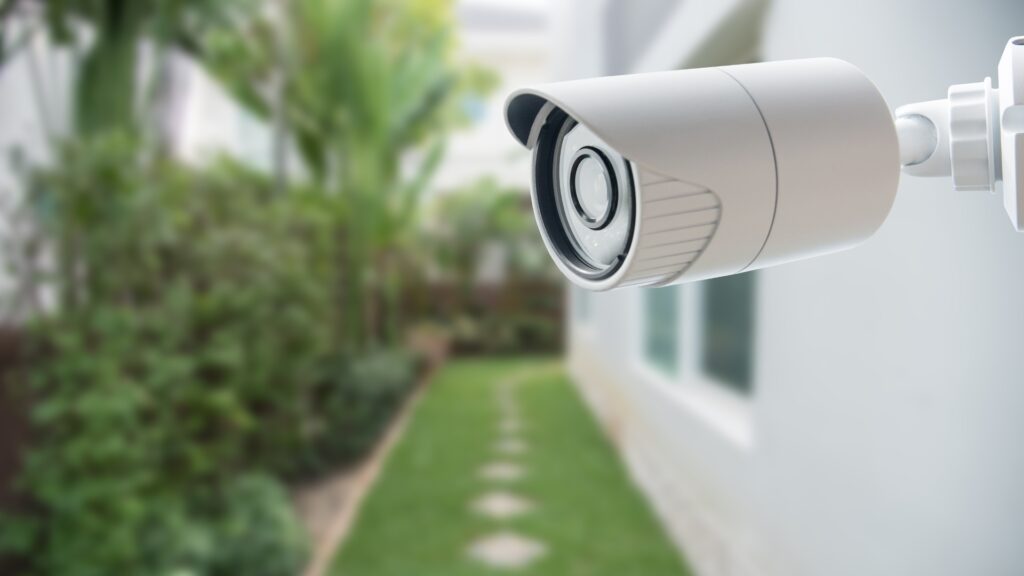
Vrbo Policy on Surveillance Devices
Notably, Vrbo has already implemented a ban on the use of indoor surveillance devices at properties listed on their platform. Airbnb’s new policy and regulations bring the two OTAs closer in how they approach property surveillance and security devices.
According to Vrbo’s policy, any device that captures photos, audio recordings, videos, geolocation, personally identifiable information, or that monitors internet data is considered a “surveillance device” and is expressly disallowed inside of a Vrbo property listed. Vrbo’s policy also includes limited exceptions for inside devices and provides detailed instructions for the allowed installation and use of outside surveillance and security devices.
How to Use Security Cameras and Surveillance Devices at Your Airbnb
Property owners and vacation rental hosts should remember that there are options for compliant property surveillance and guest security measures. Airbnb states, “Devices like doorbell cameras and noise decibel monitors continue to be permitted on Airbnb and can be an effective, privacy-protective way for Hosts to monitor security for their home and get ahead of issues like unauthorized parties.”
Here are some tips to help hosts balance property protection with Airbnb policy compliance:
- Conduct an Indoor and Outdoor Property Check: Review your property for any surveillance devices affected by the new policy. Remove all noncompliant indoor surveillance equipment and adjust any outdoor security cameras and noise monitors to ensure they do not overlook private areas.
- Amend Your Property Listing: Be clear and precise when disclosing the presence and location of outdoor surveillance or noise monitoring devices in your listing description. For example, a specific note like “Outdoor security cameras are located in the front doorbell, right of the garage overlooking the driveway, and outside the back patio door” leaves no room for misunderstanding.
- Voluntary Disclosure of Smart Devices: Though not mandatory, disclosing the presence of allowed vacation rental smart devices and providing instructions for their deactivation can build guest trust and enhance satisfaction. Be candid about the use and purpose of these devices in your welcome message and guest guidebook. Transparency helps reassure guests that you actively comply with Airbnb’s policies and that respect their safety, comfort, and privacy.
- Allowable Party Prevention Methods: With Airbnb’s ongoing efforts to curb unauthorized parties, hosts are encouraged to explore alternative methods for monitoring their properties that comply with the new guidelines. This includes the utilization of outdoor security cameras near doorways as well as noise decibel monitors, which can alert hosts to potential disturbances without infringing on guests’ privacy.
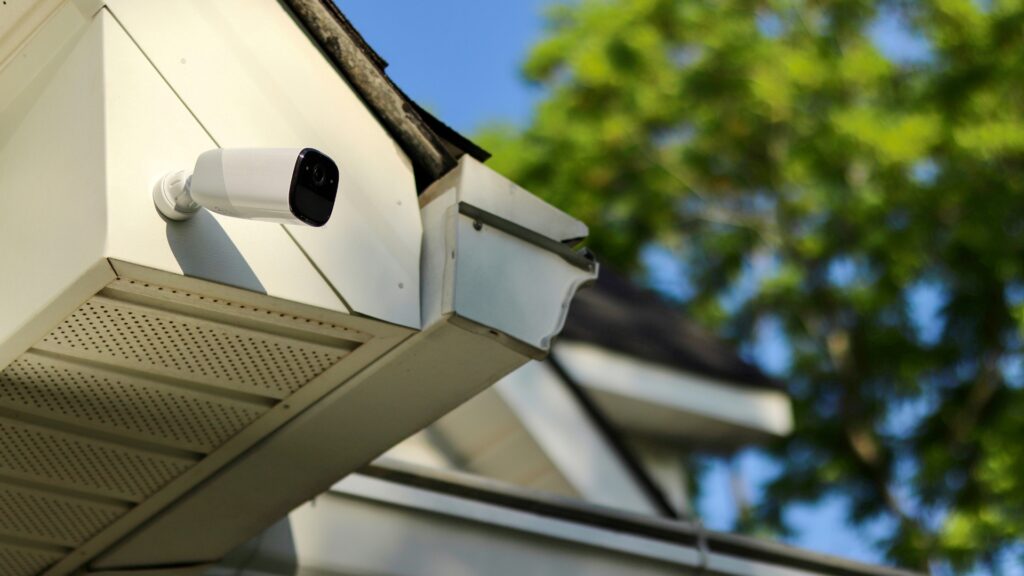
Benefits of Airbnb Security Cameras and Surveillance Devices
You’ve invested valuable time and money into your property. Taking measures to ensure its safety is entirely within your rights as a property owner. Outdoor vacation rental surveillance cameras are a cost-effective method to monitor your property and alleviate host stress.
Key benefits of installing an outdoor surveillance system at your property include:
Property Protection
Vacation rental hosts have reasonable concerns about the overall safety of their property. Security cameras and noise decibel monitors can offer hosts peace of mind about the overall access and activity happening at their property.
Security devices are a great tool for hosts because they help deter crime. Property damage and break-ins usually happen to homes that are unwatched and unmanned for periods. Vacation rentals may have extended days of vacancy between guests and can be thereby more likely targeted. Theft and property damage have a higher chance of happening to vacation rentals that may not have visible security devices.
Liability Assurance
Moreover, should guests have an accident or serious claim, security cameras would be a way of gathering evidence. If hosts need to file a claim against their guest, it is important that they have solid evidentiary support or it will be null.
Rules Enforcement
It is hard to ensure that your house rules are being followed without actually being there. With the use of an outdoor surveillance system, hosts can monitor the number of guests entering, existing, and staying over. These devices also help deter unauthorized parties or other noncompliant guest activities. In addition, they can ensure that no pets are being brought in if the vacation rental is not meant to be pet-friendly.
Downsides to Surveillance Systems at Your Vacation Rental
Before installing security cameras or other monitoring devices at your Airbnb, it’s important to understand the few downsides of having a surveillance system. While they may make hosts feel better about their property, guests may be more skeptical of booking vacation rentals with security cameras unless their use and placement are clearly and thoroughly stated upfront.
Guest Privacy
Security cameras have created controversies due to misuse. Guests simply may not be comfortable having security cameras at a place that should feel like home. As a result, the use of security cameras may create a distrustful environment between host and guest. Airbnb’s updated security and surveillance policy aims to alleviate this distrust by removing such devices from inside the property and requiring hosts to reveal their use and location in description listings, giving potential guests the information they need to decide if they wish to book at that property.
Up-Front Costs
Security cameras and other surveillance devices can be costly up-front investments, with costs associated with their purchase, installation, and ongoing monitoring if applicable. The average cost of a quality security camera is $600, according to a recent analysis by Forbes. Additional costs can come from paying outside resources to help you install and update the systems.
Most security cameras used at vacation rental properties are designed to be user-friendly and do not require much maintenance or many repairs. In addition to ensuring battery-operated devices are charged and active, hosts need to mainly plan for up-front costs and product depreciation.
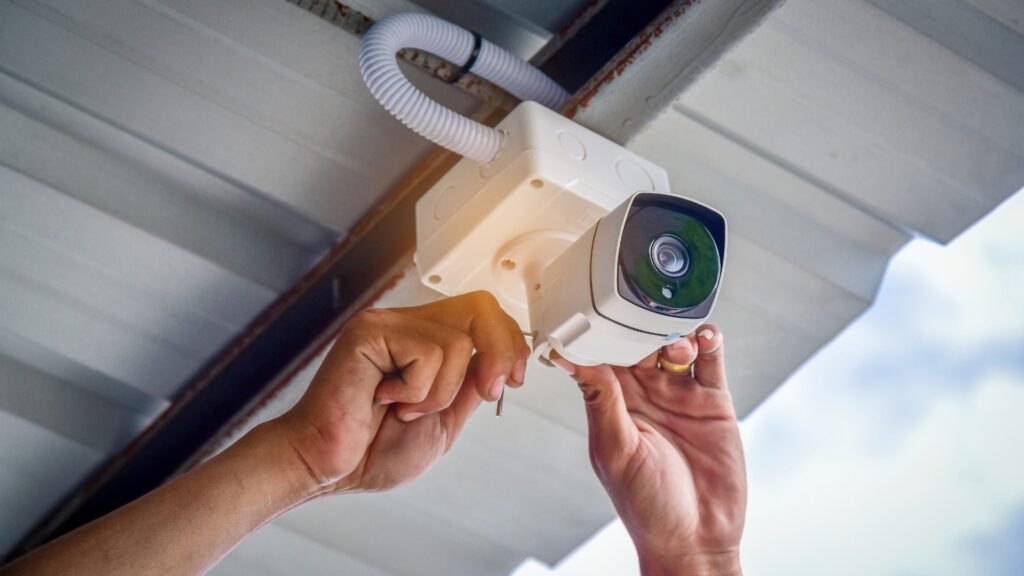
Outdoor Surveillance Cameras to Comply with Airbnb Security Policy
Protecting your property through surveillance systems remains an important consideration for any property manager or vacation rental owner. Even so, installing poor surveillance is never the right course of action. Airbnb’s new policy provides hosts an opportunity to review their security practices and invest in products that protect their property while also ensuring policy compliance.
The following are three widely used, affordable, and durable surveillance cameras.
Google Nest
Google Nest offers multiple safety devices, but these are two of their top surveillance cameras: Nest Cam Battery and Nest Doorbell Battery. Both are budget-friendly and offer a wide range of controls and quality features.
Google Nest makes it easy to manage and protect your property from afar by setting up alerts and being able to view footage from anywhere. This safety device is quick to install and isn’t a hassle to maintain. The main concern for vacation rental hosts will be ensuring that the devices’ batteries are regularly charged between guest stays.
Blink Outdoor, 3rd Generation
Blink is an Amazon security camera that is mainly for outdoor use. The Blink 3rd Generation is a great option for hosts looking to set up outdoor surveillance. It is weatherproof, has infrared night vision, an extended battery life, and more.
Hosts can customize motion zones in the Blink Home Monitor app to be alerted when motion is detected in specific locations such as outside property entryways. Plus, the system offers real-time, two-way audio features that allow for seeing, hearing, and speaking with visitors.
Arlo Security System
Arlo is another popular choice for outdoor property surveillance. Arlo security devices are WiFi enabled with your choice of being wireless or not. Arlo is a bit more of an advanced surveillance system and therefore tends to be higher priced, but many hosts believe the system is worth the up-front investment.
Its cameras offer high-resolution video, recording, and a two-way microphone for guests to let hosts know when they have arrived and are checking out. In addition, the Arlo system offers integrated doorbell cameras and motion-activated floodlight cameras.
Protect Your Airbnb Investment Properly
Airbnb surveillance cameras are an easy solution to protecting your vacation rental. When used in compliance with Airbnb and Vrbo policies, security cameras and other monitoring devices are convenient tools to safeguard, track, and manage your investment.
Protecting your Airbnb comes in many forms. Another way to protect your property investment is to keep it in top-notch condition. Hiring a professional Airbnb cleaning service can aid in doing so. Through the Turno Host App, hosts can manage property problem reports, track inventory, and more.





